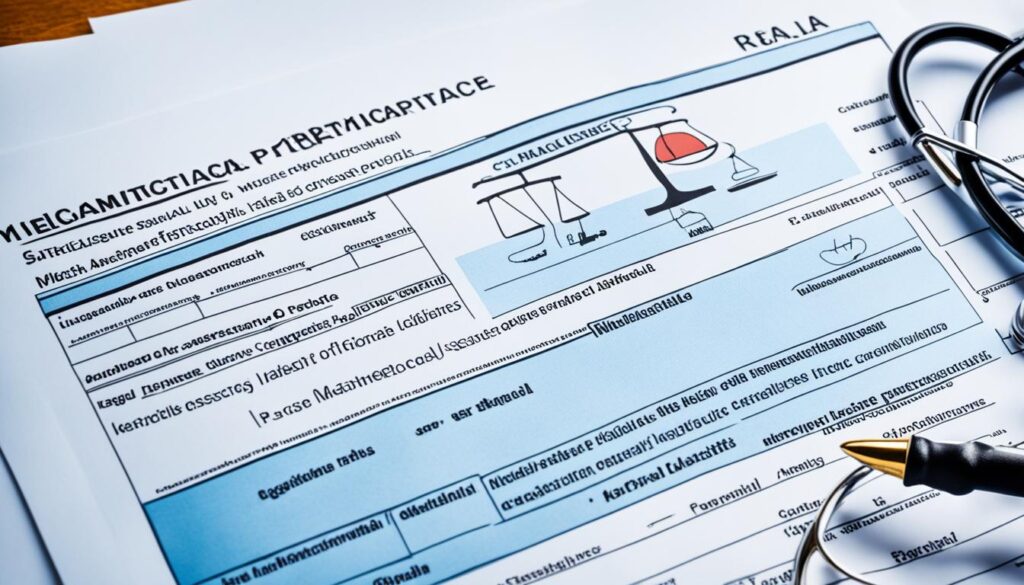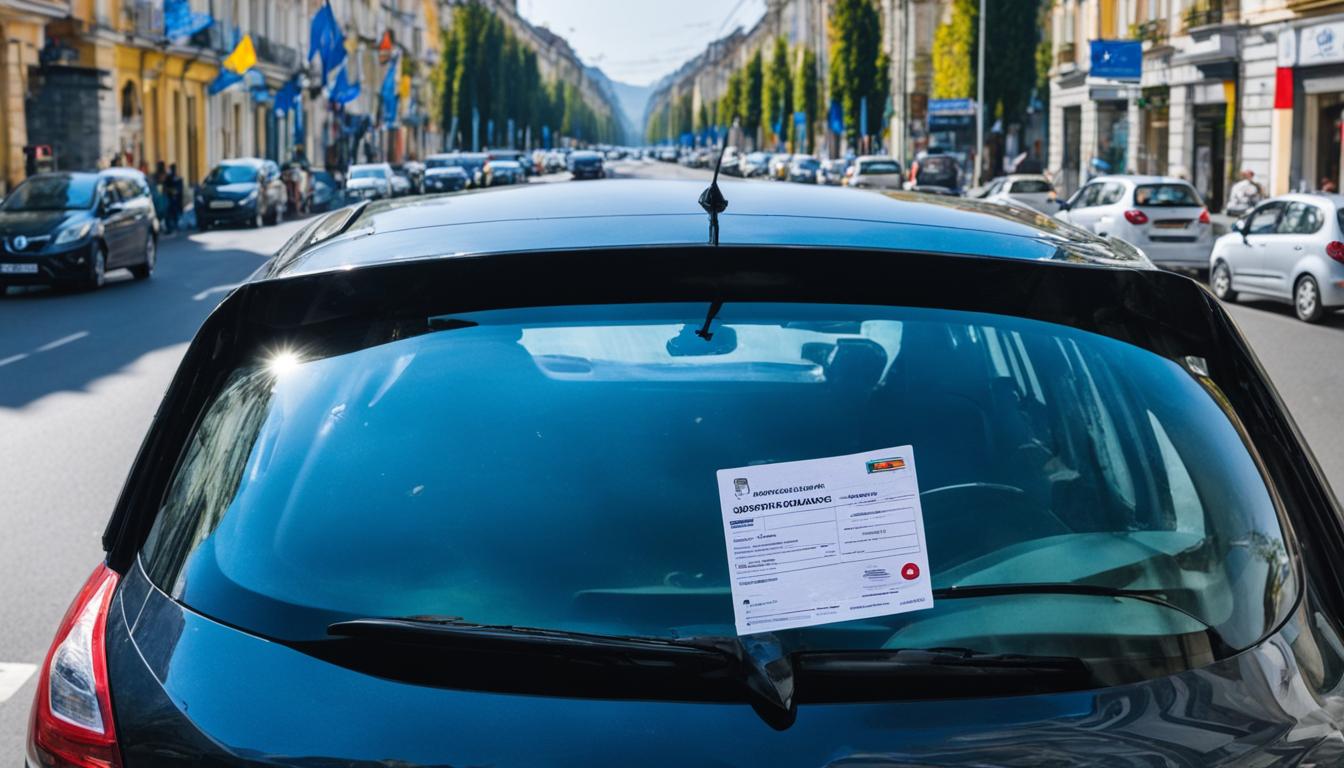Consumer Protection Law in Romania: Your Rights
Consumer Protection Law in Romania: Your Rights

Have you considered familiarizing yourself with your consumer rights in Romania?
In the intricate landscape of today’s world, grasping consumer protection laws is crucial.
These laws serve as a safeguard, ensuring that your shopping experiences are secure and free from exploitation.
Consumer Protection Law in Romania advocates for your interests, promoting transparency and safety in commerce.
Armed with this understanding, you can assert your rights and be confident in the availability of legal support when necessary.
Comprehending how these laws shield you is vital, with numerous regulations and organizations providing oversight.
Key Takeaways:
- The Consumer Protection Law No. 21/1992 outlines essential consumer rights in Romania.
- You have the right to accurate information about products and services.
- Specific regulatory bodies oversee consumer protection tailored to different sectors.
- Both sellers and manufacturers bear responsibility for product safety and defects.
- Compensation for damages is a key consumer right enforced by law.
Introduction to Consumer Protection in Romania
Consumer protection in Romania is key to a fair market.
It makes sure your interests are safe from unfair practices.
Laws and regulations protect your rights, making sure deals are fair and clear.
The key law here is the Directive 2011/83/EU on consumer rights, adopted through Government Emergency Ordinance no. 34/2014. It guides how businesses treat you, ensuring a fair deal.
Decree no. 947/2000 makes sure prices are clear, based on Directive 98/6/EC. This helps you know what you’re paying for, keeping the market fair.
Law no. 193/2000 addresses unfair contract terms in accordance with Directive 93/13/EEC, ensuring that businesses disclose contract details transparently. Should a business mislead you, Law no. 363/2007 offers protection.
The National Authority for Consumer Protection (ANPC) makes sure these laws are followed. You can complain if you think your rights are ignored. This lets authorities look into it and help you.
These rules in Romania push for fair competition.
They make sure everyone follows the same rules.
This builds trust and helps you make better choices in the market.
| Regulation | Purpose | Key Features |
|---|---|---|
| Government Emergency Ordinance no. 34/2014 | Implementation of consumer rights directives | Sets standards for transparency in transactions |
| Decision no. 947/2000 | Price indication of products | Ensures clear pricing for consumers before purchase |
| Law no. 193/2000 | Protection against unfair terms in contracts | Requires transparency in contract terms |
| Law no. 363/2007 | Combat unfair commercial practices | Promotes honest marketing practices |
Knowing about these rules is important. It helps protect your rights in Romania’s market.
Understanding Consumer Rights
Consumer protection is key for a fair and safe market.
Knowing the definition of consumer Romania and basic rights helps you shop with confidence.
According to Romania’s Government Ordinance no. 21/1992, a consumer is defined as a person who purchases goods for personal use and not for professional purposes.
Definition of Consumer in Romanian Law
The definition of consumer Romania is based on legal terms that protect your rights in buying things.
It says a consumer is someone who buys things for personal use, not work.
This rule gives you many protections, making shopping safe for you.
Key Consumer Rights in Romania
Knowing about consumer protection Romania helps you shop and use services better.
Here are the main fundamental consumer rights in Romania:
- Right to Safety: You have the right to be protected from dangerous products.
- Right to Information: You must get clear and true information to make good choices.
- Right to Compensation: If a product is faulty, you can get compensation.
- Right to Privacy: Your personal data is protected under GDPR rules.
- Right to Fair Treatment: You should be treated fairly in all business dealings.
This knowledge helps you as a consumer.
It gives you the tools to stand up for your rights and make sellers accountable.
| Consumer Rights | Description |
|---|---|
| Right to Safety | Protection from unsafe products. |
| Right to Information | Access to clear and truthful product details. |
| Right to Compensation | Entitlement to damages for faulty goods. |
| Right to Privacy | Safeguarding personal data usage. |
| Right to Fair Treatment | Equitable treatment in transactions. |
Legal Framework of Consumer Protection Law in Romania

The legal system for protecting consumers in Romania is complex.
It is made up of several key laws. These laws make sure consumers are safe and keep the market honest.
Relevant Legislation and Regulations
Significant legislation is in place to safeguard the rights of consumers in Romania.
For instance, Law no. 296/2004 established the Consumer Code.
This law sets the rules for consumer rights.
Law no. 363/2007 updated over 15 old laws, making the rules clearer.
This mix of laws helps protect consumers deeply.
It also makes sure different legal rules can work together smoothly.
Roles of Regulatory Bodies
Groups like the National Authority for Consumer Protection (ANPC) play a big part in enforcing consumer laws.
ANPC is the main group that looks after consumer rights. They do things like:
- Check if businesses follow the law.
- Test products and services to make sure they are good quality.
- Watch the market to see if products and services are safe.
- Help with solving consumer problems through mediation.
Consumer groups also play a big role.
They must register with ANPC and meet certain rules.
With nine groups working together, they help consumers by giving them information, speaking up in court, and working with the government.
This helps solve consumer problems better.
| Legislation/Regulation | Key Focus | Impact on Consumers |
|---|---|---|
| Law no. 296/2004 | Consumption Code | Establishes fundamental consumer rights |
| Law no. 363/2007 | Unfair trading practices | Prevents deceptive practices in consumer contracts |
| National Authority for Consumer Protection (ANPC) | Enforcement and oversight | Ensures compliance with consumer laws |
| Consumer Associations | Advocacy and representation | Informs and represents consumers’ interests |
Consumer Protection Law in Romania: Your Rights

In Romania, strong consumer rights ensure fair transactions. The emphasis on protection from unfair practices demonstrates a commitment to market fairness.
Consumers have the right to receive accurate information about their purchases, aiding in better decision-making and resistance to unfavorable contracts.
If products fail to meet standards, consumers can seek compensation, fostering trust and encouraging further shopping.
Joining consumer support groups amplifies your voice against injustices, as these organizations ensure corporate compliance.
The National Authority for Consumer Protection (ANPC) plays a crucial role in upholding your rights, focusing on individual assistance and maintaining high standards.
Moreover, it’s essential for all product information to be available in Romanian, ensuring clear understanding and preventing errors.
Product Safety Regulations
Product safety is key in Romania’s consumer protection laws.
It includes many rules to make sure products are safe for buyers.
These rules are set by Law No. 449/2003.
They make sure shopping is safe for everyone.
Manufacturers and sellers have important roles to play.
Adherence to product safety laws in Romania is essential for consumer protection.
General Product Safety Laws
Romania has updated its product safety laws to match EU standards.
This includes rules on general safety and who is responsible for faulty products.
These rules help prevent dangers.
Adopting EU directives has greatly improved consumer safety.
It’s a big step forward.
Responsibilities of Manufacturers and Sellers
Manufacturers primarily bear the responsibility for product safety.
They are obligated to test and verify that their products are safe, thereby preventing harm to consumers.
Retailers also play a part in this process.
They must ensure that the products they sell are safe.
In cases where a product is defective, the manufacturer is held accountable.
Consumers have the right to seek compensation from manufacturers for any injuries or harm caused by defective products.
Consumers have legal avenues available to them, such as warranty claims and litigation.
These mechanisms demonstrate a robust commitment to consumer rights, ensuring that concerns regarding product safety are addressed and assistance is provided to those impacted.
Unfair Trade Practices and Consumer Rights

Unfair trade practices can affect your rights as a consumer in Romania.
It’s important to know about these practices to protect yourself.
These can include misleading ads, aggressive sales, and other tricks meant to take advantage of you.
Identifying Unfair Trade Practices in Romania
Law no. 363/2007 lists several unfair trade practices. These include:
- Misleading advertising that distorts facts about products or services.
- Aggressive sales techniques that pressure consumers into making hasty decisions.
- Inclusion of unfair contract terms that create an imbalance in rights and obligations.
If you face these issues, you can seek help.
You can report violations to the right authorities to protect your interests.
The law also offers ways to fix problems caused by unfair practices.
Legal Implications of Unfair Practices
Companies caught in unfair trade practices face big fines.
The Competition Council can fine them between RON 250,000 and RON 600,000.
If a supplier harms a buyer through these practices, the buyer might get triple the damages.
Companies that admit their mistakes might get a smaller fine.
This encourages them to follow the law.
You can appeal decisions on unfair trade practices within 30 days.
This helps keep the system fair.
| Unfair Trade Practices | Legal Framework | Remedies Available |
|---|---|---|
| Misleading Advertising | Law no. 363/2007 | Compensation & Reporting |
| Aggressive Sales Tactics | Competition Council Regulations | Fines & Triple Damages |
| Unfair Contract Terms | Consumer Protection Laws | Contract Modification |
Warranty Obligations and Consumer Protection
In Romania, warranty obligations are key to protecting consumers.
They come from both laws and commercial agreements.
Knowing the difference helps you make better choices when buying things.
Statutory vs. Commercial Guarantees
Warranty laws in Romania split into two types: statutory and commercial.
- Statutory guarantees say products must be defect-free for two years after delivery.
- Commercial guarantees can offer more coverage, depending on the seller.
Consumer Rights Under Warranty Laws
Your rights are important if a product doesn’t live up to its promises.
Law no. 449/2003 explains these rights.
You can ask for repair, replacement, a price cut, or cancel the contract if a product fails.
You must tell the seller about any warranty issues within two months of finding them.
This makes sure your rights are looked after.
| Type of Warranty | Duration | Consumer Actions |
|---|---|---|
| Statutory Guarantee | Minimum 2 years | Repair, Replacement, Price Reduction |
| Commercial Guarantee | Varies by seller | Depends on terms offered by seller |
Consumers can also ask for compensation for damages from faulty products.
You must make this claim within three years of finding the damage or ten years after the product was first sold.
Romania’s warranty laws give you strong consumer rights and make sellers take their duties seriously.
False Advertising Regulations in Romania
False advertising is a significant problem in Romania, addressed by Law no. 158/2008.
This legislation clearly defines prohibited practices, preventing advertisements that deceive or mislead consumers into making poor decisions.
Additionally, it prohibits any form of discrimination in advertising based on race, gender, or origin.
Understanding Misleading Advertising
In Romania, comparative advertising is permitted, but it is subject to regulations.
Advertisements are required to compare similar products objectively and must not disparage competing companies.
Regulatory bodies, such as the Ministry of Economy and Finance and the National Audiovisual Council, oversee compliance with these rules and strive to prevent unfair or illegal advertising practices.
Consumer Recourse for False Advertising
If you believe an advertisement has deceived you, there are avenues for assistance.
You can report to the authorities or seek compensation for any damages incurred.
Violating advertising regulations can result in substantial fines, deterring companies from disseminating false advertisements.
The introduction of legislation such as Law 414/2023 provides additional methods for individuals to challenge deceptive advertising.
This law facilitates consumer empowerment in confronting misleading advertisements.
What are the consumer complaint mechanisms available?
You can file a complaint with the ANPC or join a consumer association for disputes over unfair practices.
These mechanisms help resolve consumer issues.
Our team of experienced Romanian lawyers and professionals can resolve any legal issue in a timely manner.
FAQ:
What is consumer protection?
Consumer protection refers to the laws and regulations that are designed to ensure the rights of consumers are upheld, promoting fair trade, competition, and accurate information in the marketplace. It encompasses various aspects, including the right to safety, the right to be informed, and the right to choose.
In the context of Romania, consumer protection in Romania is governed by both national laws and EU directives aimed at safeguarding consumer rights.
What are the main consumer rights in Romania?
Consumer rights in Romania include the right to receive goods that are free from defects, the right to return products, and the right to compensation in cases of non-compliance.
These rights are supported by Romanian law and align with the principles of EU legislation.
Furthermore, according to law, consumers have the right to be informed about the characteristics and price of products before making a purchase.
What is a contract in the context of consumer protection?
A contract in the context of consumer protection is a legally binding agreement between a consumer and an economic operator regarding the sale of goods or services.
It must comply with the provisions of consumer law, ensuring that the terms are fair and transparent.
If a contract concluded includes unfair terms in consumer contracts, consumers may seek redress under Romanian law.
What does the term ‘lack of conformity’ mean?
Lack of conformity refers to a situation where the goods or services provided do not meet the agreed specifications or are defective.
Under consumer protection rules, consumers are entitled to a remedy, which may include repair, replacement, or a refund if the goods are found to be non-compliant with the contract.
How does the European Union influence consumer protection?
The European Union plays a critical role in shaping consumer protection standards across member states, including Romania.
Through various EU directives on consumer protection, the EU aims to create a high level of consumer protection, ensuring that all consumers enjoy the same rights regardless of their country of residence.
This includes regulations on safety, information, and the handling of complaints.
What is the role of the National Authority for Consumer Protection?
The National Authority for Consumer Protection in Romania is to take action to prevent and combat practices that are harmful to the life, health, safety and economic interests of consumers.























